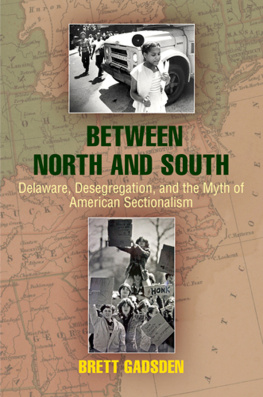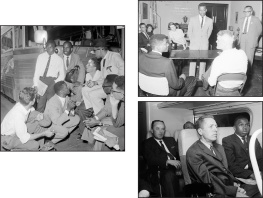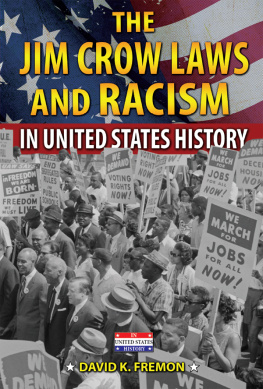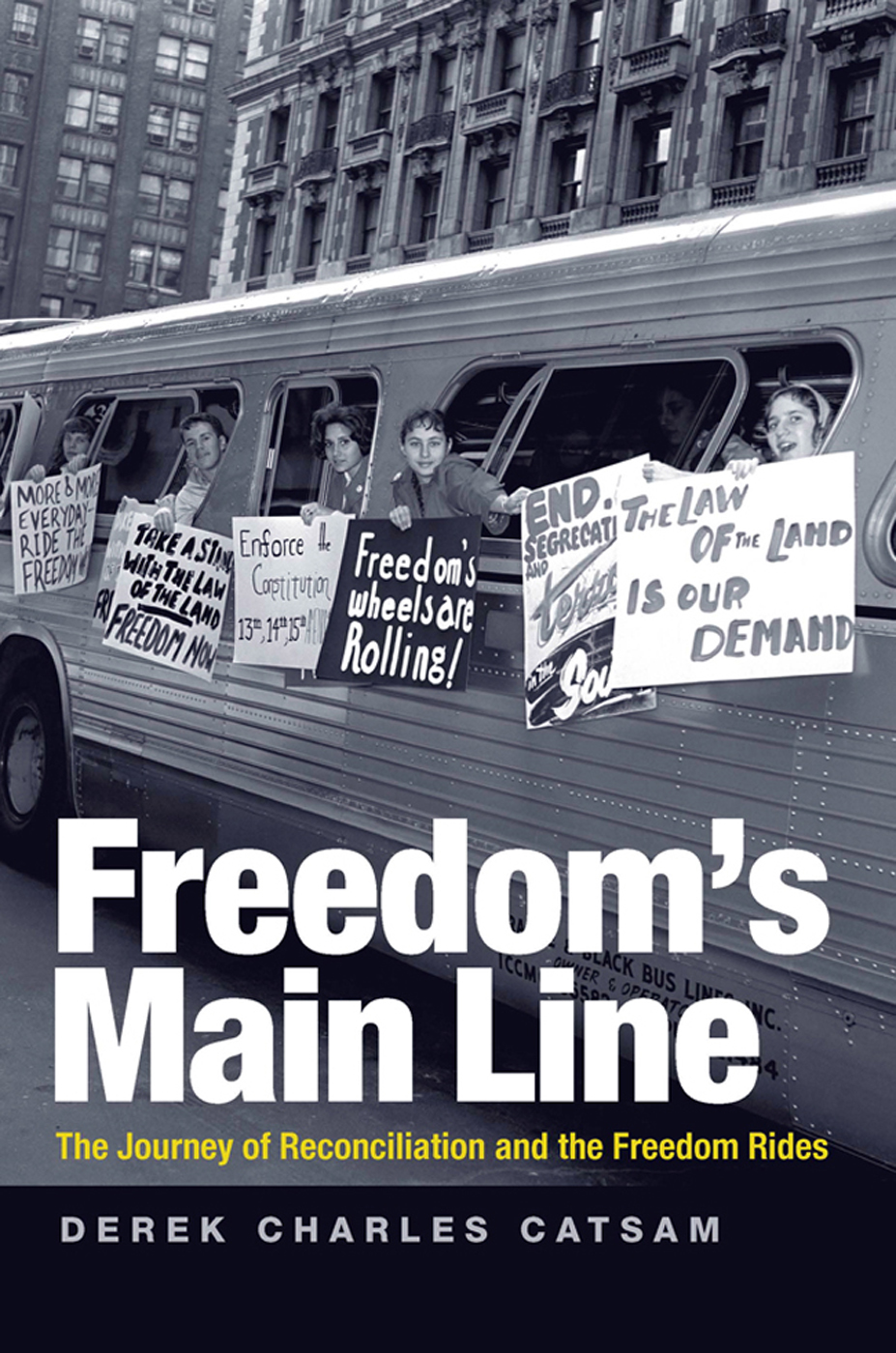Derek Charles Catsam - Freedoms Main Line: The Journey of Reconciliation and the Freedom Rides
Here you can read online Derek Charles Catsam - Freedoms Main Line: The Journey of Reconciliation and the Freedom Rides full text of the book (entire story) in english for free. Download pdf and epub, get meaning, cover and reviews about this ebook. year: 2009, publisher: The University Press of Kentucky, genre: Politics. Description of the work, (preface) as well as reviews are available. Best literature library LitArk.com created for fans of good reading and offers a wide selection of genres:
Romance novel
Science fiction
Adventure
Detective
Science
History
Home and family
Prose
Art
Politics
Computer
Non-fiction
Religion
Business
Children
Humor
Choose a favorite category and find really read worthwhile books. Enjoy immersion in the world of imagination, feel the emotions of the characters or learn something new for yourself, make an fascinating discovery.

- Book:Freedoms Main Line: The Journey of Reconciliation and the Freedom Rides
- Author:
- Publisher:The University Press of Kentucky
- Genre:
- Year:2009
- Rating:3 / 5
- Favourites:Add to favourites
- Your mark:
Freedoms Main Line: The Journey of Reconciliation and the Freedom Rides: summary, description and annotation
We offer to read an annotation, description, summary or preface (depends on what the author of the book "Freedoms Main Line: The Journey of Reconciliation and the Freedom Rides" wrote himself). If you haven't found the necessary information about the book — write in the comments, we will try to find it.
Black Americans in the Jim Crow South could not escape the grim reality of racial segregation, whether enforced by law or by custom. In Freedoms Main Line: The Journey of Reconciliation and the Freedom Rides, author Derek Charles Catsam shows that courtrooms, classrooms, and cemeteries were not the only front lines in African Americans prolonged struggle for basic civil rights. Buses, trains, and other modes of public transportation provided the perfect means for civil rights activists to protest the second-class citizenship of African Americans, bringing the reality of the violence of segregation into the consciousness of America and the world. In 1947, nearly a decade before the Supreme Court voided school segregation in Brown v. Board of Education, sixteen black and white activists embarked on a four-state bus tour, called the Journey of Reconciliation, to challenge discrimination in busing and other forms of public transportation. Although the Journey drew little national attention, it set the stage for the more timely and influential 1961 Freedom Rides. After the Supreme Courts 1960 ruling in Boynton v. Virginia that segregated public transportation violated the Interstate Commerce Act, the Congress of Racial Equality (CORE) and other civil rights groups organized the Freedom Rides to test the enforcement of the ruling in buses and bus terminals across the South. Their goal was simple: to make bus desegregation, as a CORE press release put it, a reality instead of merely an approved legal doctrine. Freedoms Main Line argues that the Freedom Rides, a turning point in the Civil Rights Movement, were a logical, natural evolution of such earlier efforts as the Journey of Reconciliation, their organizers following models provided by previous challenges to segregation and relying on the principles of nonviolence so common in the larger movement. The impact of the Freedom Rides, however, was unprecedented, fixing the issue of civil rights in the national consciousness. Later activists were often dubbed Freedom Riders even if they never set foot on a bus. With challenges to segregated transportation as his point of departure, Catsam chronicles black Americans long journey toward increased civil rights. Freedoms Main Line tells the story of bold incursions into the heart of institutional discrimination, journeys undertaken by heroic individuals who forced racial injustice into the national and international spotlight and helped pave the way for the landmark Civil Rights Act of 1964.
Derek Charles Catsam: author's other books
Who wrote Freedoms Main Line: The Journey of Reconciliation and the Freedom Rides? Find out the surname, the name of the author of the book and a list of all author's works by series.







